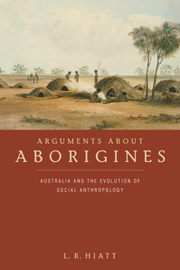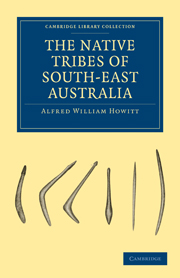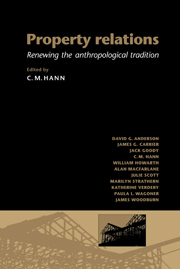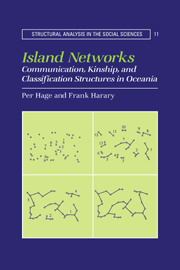Arguments about Aborigines
In the debates which followed the publication of Darwin's book on the origin of species, Australian Aborigines were used as the ideal exemplars of early human forms by European scholars bent on discovering the origins of social institutions. The Aborigines have consequently featured as the crucial case-study for generations of social theorists, including Tylor, Frazer, Durkheim and Freud. Arguments about Aborigines reviews a range of controversies such as family life, religion and ritual, and land rights, which marked the formative period of British social anthropology. Professor Hiatt also examines how changes in Aboriginal practices have affected scholarly debate. This elegant 1996 book will provide a valuable introduction to aboriginal ethnography for students, scholars and the general reader. It is also a shrewd and stimulating history of the great debates of anthropology, seen through the prism of Aboriginal studies.
- Written in a clear, non-technical style, so a good introduction to Aboriginal studies
- The author is a widely known and respected expert in Aboriginal studies
- Illuminates how anthropologists have sought to explain puzzling phenomena through dialectical method
Reviews & endorsements
"In our native titles era, lawyers, historians and interested non-professionals would find it useful to learn more of anthropologists' intellectual engagements with Aboriginal people over the past century or so. This important book is a good place to start; it is an achievement worthy of a distinguished tribal elder." Bruce Rigsby, Australian Journal of Politics and History
"Reading each of these chapters as separate essays provides one with a brilliant and critical commentary on the history of anthropological thought....Reading the essays in their totality is fascinating. In many ways they read like a mystery of a detective story where the plot is set in the 1850's, subplots and mini-narratives are added on and eventually the 'scientism' of social anthropology displaces the misnomers of the nineteenth century as well as the metaphysics of Aboriginal thought and interpretation." Aram Yengoyan, American Anthropologist
"Reading the essays in their totality is fascinating. In many ways they read like mystery or detective stories in which the plots are set in the 1850's, subplots and mininarratives are added on, and eventually the scientism of social anthropology displaces the misnomers of the 19th century as well as the metaphysics of Aboriginal thought and interpretation. Each chapter drew me intellectually and inquisitively to the ideas and issues espoused prior to 1910." Aram A. Yengoyan, American Anthropologist
Product details
June 1996Paperback
9780521566193
240 pages
234 × 156 × 13 mm
0.34kg
9 b/w illus. 6 colour illus. 1 map
Available
Table of Contents
- List of illustrations
- Preface
- Acknowledgements
- 1. Prologue
- 2. Real estates and phantom hordes
- 3. Group marriage
- 4. The woman question
- 5. People without politics
- 6. High gods
- 7. Conception and misconception
- 8. Dangerous mothers-in-law and disfigured sisters
- 9. Initiation: the case of the cheeky yam
- 10. Epilogue
- Notes
- References
- Index.







